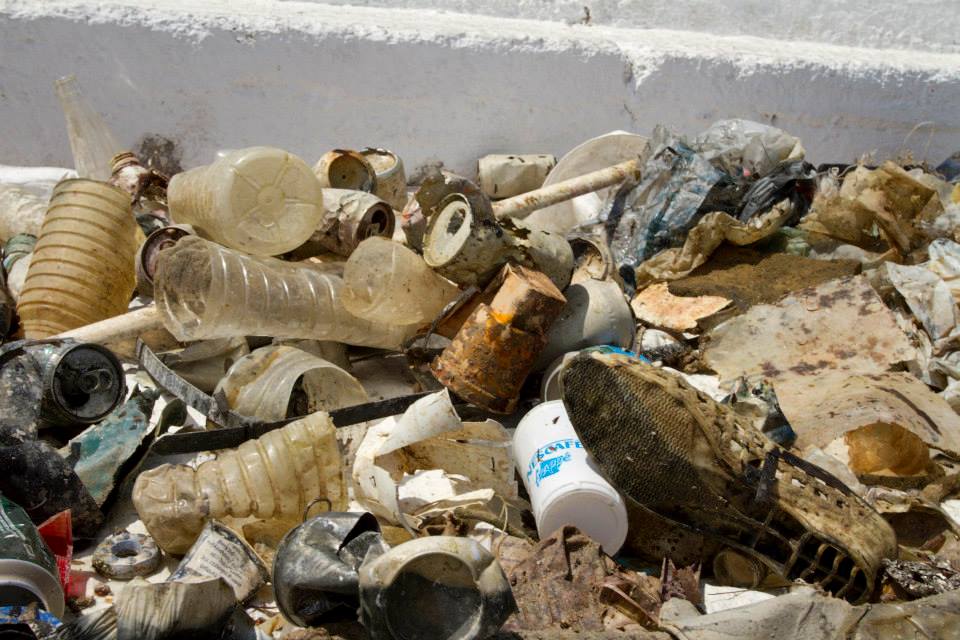Plastic Pollution in the Mediterranean Sea: Evidence through Underwater Citizen Science Action
New research study, informed by Dive Against Debris® surveys of seafloor litter, reveals scale and density of plastic pollution in the Mediterranean
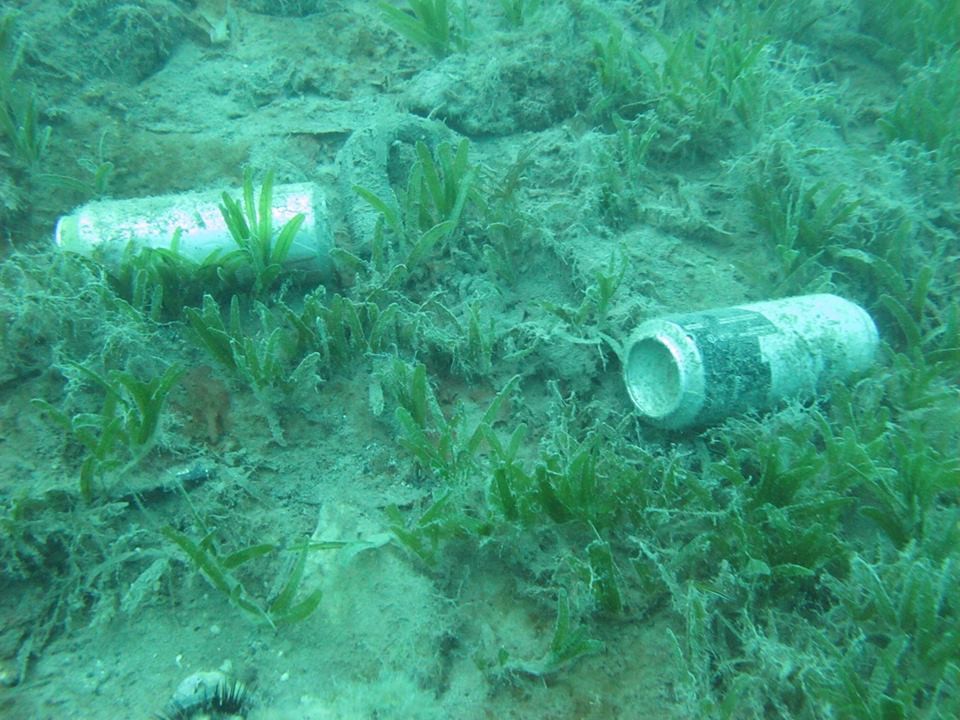
Between 2011 and 2018, 468 Dive Against Debris® survey dives were conducted in 172 coastal locations of the Mediterranean Sea through Project AWARE's citizen science program. The analysis of the data collected and the results of the study have now been made available and will be used to develop waste management actions and policies across Europe.
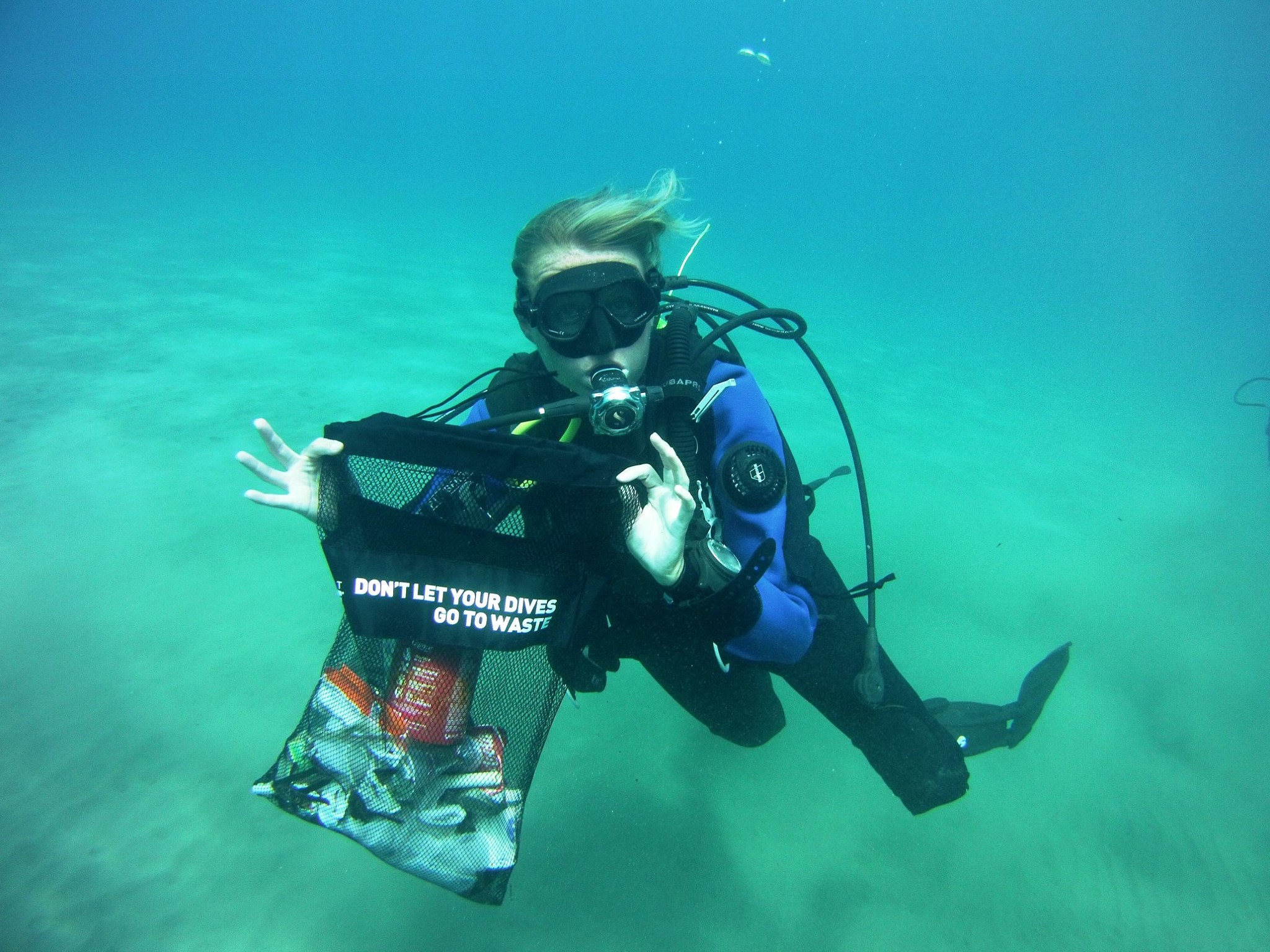
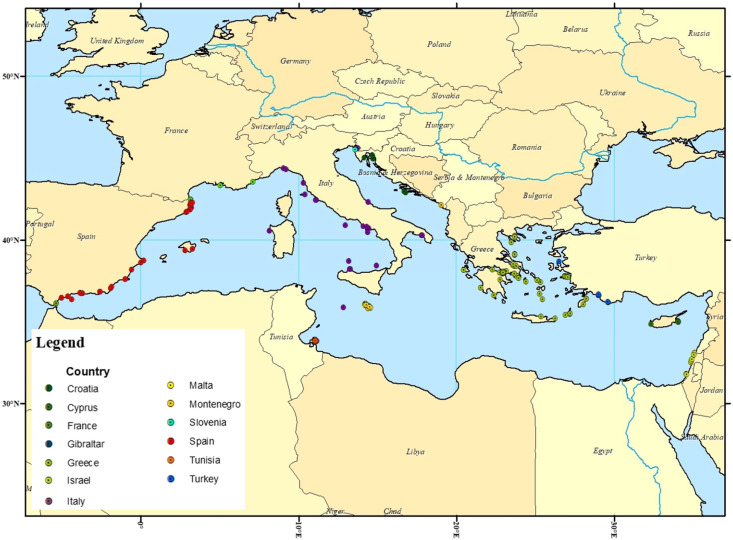
During the survey dives, information was collected on quantity, type, and distribution of seafloor litter in shallow coastal waters. Overall, the observed average density was 43.55 items per 100 m2, with plastics the predominant material. 55% of the total collected items were identified as being made from plastic. The most abundant seafloor litter items were plastic fragments with 9.46%, followed by beverage cans (7.45%). Single-use plastic items constituted 33% of the total marine litter.
Advancing our knowledge and understanding regarding marine debris, in particular seafloor debris, is integral in informing policy and developing solutions to prevent debris at the source. As such, Project AWARE recognizes the importance of partnering with research institutes in order to advance scientific understanding. The Dive Against Debris® data set provides an invaluable resource regarding quantifiable data on seafloor marine debris as well as debris-free dive sites - knowing where rubbish is not present is just as important as knowing where it is present, especially in identifying marine debris hotspots. There is no other data set that captures information on seafloor debris at this scale both temporally and spatially.
Currently, Project AWARE is collaborating on a research project with the Commonwealth Scientific and Industrial Research Organisation (CSIRO) in Australia, using the global Dive Against Debris® dataset along with the Ocean Conservancy’s International Coastal Cleanup (ICC) dataset (which focuses on beach cleanups), to conduct an analysis of coastal and seafloor debris to identify sources of marine debris, which in turn will inform policy changes. This is the first analysis of its kind to be conducted on a global scale, comparing land and seafloor debris (Dive Against Debris® providing seafloor debris data and ICC providing the land debris data).
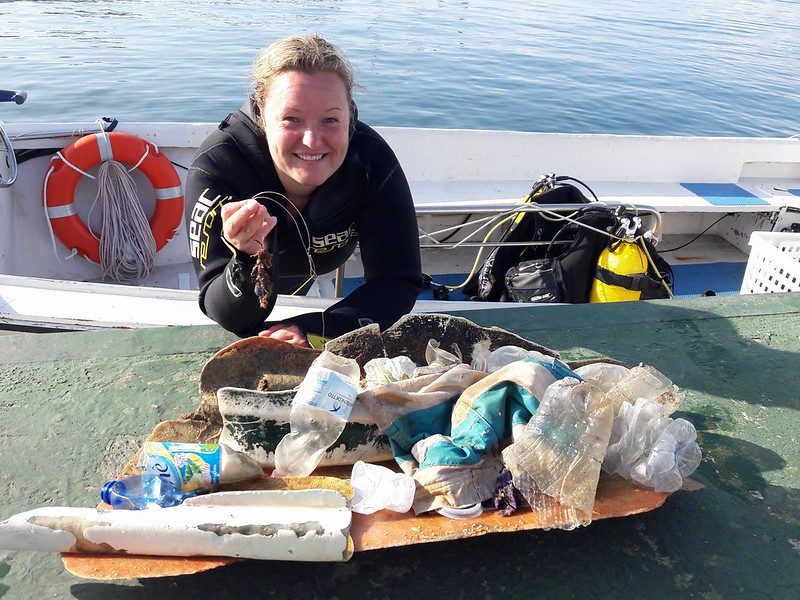 Understanding the transport of marine debris from land into marine systems and the corresponding debris density on the seabed is critical for understanding the distribution and trends of marine debris, including plastic, in the ocean.
Understanding the transport of marine debris from land into marine systems and the corresponding debris density on the seabed is critical for understanding the distribution and trends of marine debris, including plastic, in the ocean.
Such an analysis could be useful to estimate the potential impact of debris on regional economies near sources, as well as clarifying the magnitude of this pollution to the public, to industry and policy-makers," comments Hannah Pragnell-Raasch, Project AWARE's Policy Specialist -Clean Ocean and co-author of the Mediterranean Study.
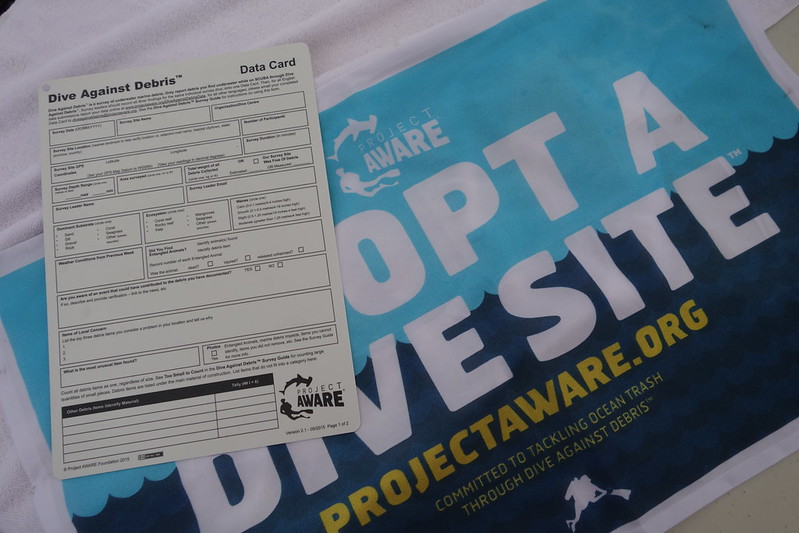 Dive Against Debris provides a standardized survey protocol that can be implemented locally anywhere in the world to monitor sites in order to provide a baseline against which to measure trends and potentially the effects of local policies. This is why Adopt A Dive Site™ is so important - it provides repeat data at the same location that builds this baseline locally providing the opportunity to identify the effects of local policy as well as potential gaps where policy needs to be prioritized. Dive Against Debris® is also in alignment with the United Nations Sustainable Development Goals in a number of target areas. Our latest interactive infographic highlights those areas and Project AWARE’s continued support of the 2030 Agenda for Sustainable Development.
Dive Against Debris provides a standardized survey protocol that can be implemented locally anywhere in the world to monitor sites in order to provide a baseline against which to measure trends and potentially the effects of local policies. This is why Adopt A Dive Site™ is so important - it provides repeat data at the same location that builds this baseline locally providing the opportunity to identify the effects of local policy as well as potential gaps where policy needs to be prioritized. Dive Against Debris® is also in alignment with the United Nations Sustainable Development Goals in a number of target areas. Our latest interactive infographic highlights those areas and Project AWARE’s continued support of the 2030 Agenda for Sustainable Development.
The Mediterranean Study informed by Dive Against Debris® surveys recently published in ScienceDirect Marine Pollution Bulletin represents the first collection of marine litter data coming from European volunteer divers. Data analysis is essential for informing policy and implementing legislation that prevents debris from entering the ocean in the first place. Citizen science is a powerful tool to support scientific research, public awareness and policy change.
We are now looking at subsequent analyses that may be possible to conduct which identify the effectiveness of local policies such as container deposit schemes and plastic bag bans using the Dive Against Debris dataset." continues Hannah . “Our global army of citizen scientists are able to provide an effective way of monitoring the effectiveness of marine debris policies anywhere in the world.”
Thank you to all the Dive Against Debris® volunteers who have contributed seafloor marine debris data to inform this research study and many more to come.
